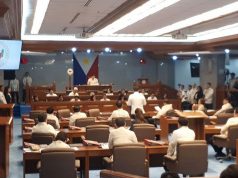Gov’t urged to shift to PPP after credit upgrade
By Charmaine A. Tadalan, Reporter
THE Foundation for Economic Freedom on Friday called on the government to begin shifting from Official Development Assistance (ODA) to Public-Private Partnership (PPP), following its credit rating upgrade.
“Overall, PPP Projects will turn out to be cheaper than ODA projects because of the incentive of the private proponent to finish the projects on budget and on time, especially with the lower borrowing costs enabled by the higher S&P ratings,” the FEF said in a statement, Friday.
Standard and Poor’s (S&P) Global Ratings on Tuesday raised the Philippine government’s debt rating to BBB+ from BBB, which is expected to boost investments in the country.
The FEF also commended President Rodrigo R. Duterte and Finance Secretary Carlos G. Dominguez III for pushing economic reforms and fiscal policies, as also cited by S&P.
The government has so far legislated the Rice Tariffication Law, Amendments to the Bangko Sentral ng Pilipinas Charter and the Tax Reform for Acceleration and Inclusion Law.
The FEF urged the government to continue efforts to introduce more policy reforms, particularly in the agricultural sector.
“In particular, the administration should focus on agricultural growth, which had been lagging behind population growth. Its weak performance had been acting as a drag to manufacturing and the other sectors of the economy, making the country vulnerable to food price shocks,” it added.
The FEF also raised the need for immediate resolution of the ongoing water crises and the recent unplanned power outages that have prompted the National Grid Corporation to raise yellow and red alerts in the Luzon grid over the past weeks.
Moreover, the FEF flagged the need to improve export performance to contain the widening trade deficit. “The country cannot continue to rely on OFW (overseas Filipino workers) remittances to finance its negative external trade position.”
“In the meantime, the administration should also promote tourism and a stable mining policy regime in order to generate more dollars to finance the growing capital import requirements of its bold infrastructure program,” the FEF said.



